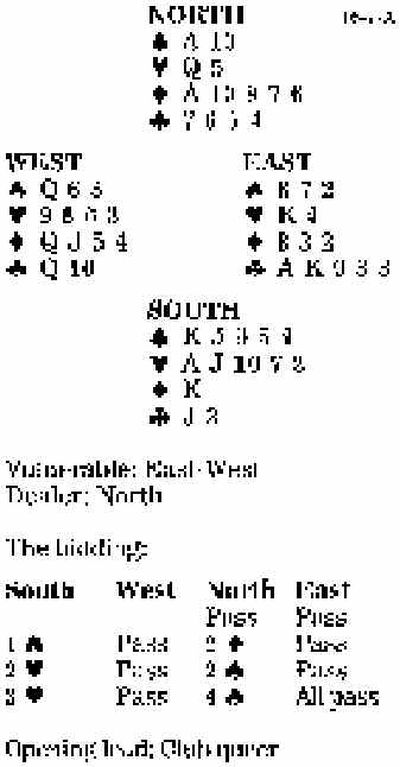Bridge

I have remarked before on the dangers of premature euphoria at the bridge table. Just as it is difficult to recover from a disastrous opening lead by regaining concentration and finding the best play to beat the hand, so on a successful opening lead there is always the danger of relaxing and failing to see your good start through to a successful finish.
On today’s deal West opted to lead the unbid suit against four spades, a lead that turned out rather well. When the club queen held, he continued with the 10 of clubs to his partner’s king. East continued with the club eight, which declarer ruffed with the spade nine.
Had West fallen prey to euphoria and overruffed, declarer would have had no further problems. He would have won the trump continuation with dummy’s ace, advanced the heart queen (covered with the king and ace), then played to ruff a heart in dummy. He would have come back to hand with the diamond king, drawn trumps, and claimed the rest.
However, this West smoothly discarded the diamond four on the third club, feeling sure the trick would come back one way or another. Declarer was not sure of the heart finesse, but he did feel certain of the spade position. He therefore crossed to dummy with the spade ace and ran the 10 of spades. West won with the queen and exited with a trump, and now there was no way for declarer to avoid losing a heart to West’s nine.
Bid with the aces
South holds:
| •8 7 2 | |
| •K 4 | |
| •8 3 2 | |
| •A K 9 8 3 |
| South | West | North | East |
| 1 • | Pass | ||
| ? |
Answer: Respond one no-trump rather than bidding two clubs, which would show a slightly better hand than this. The range for one no-trump goes up to 10 points. Since the typical hand opposite is 12-14 balanced, you have no reason to go to the two- or three-level when you can stay low.